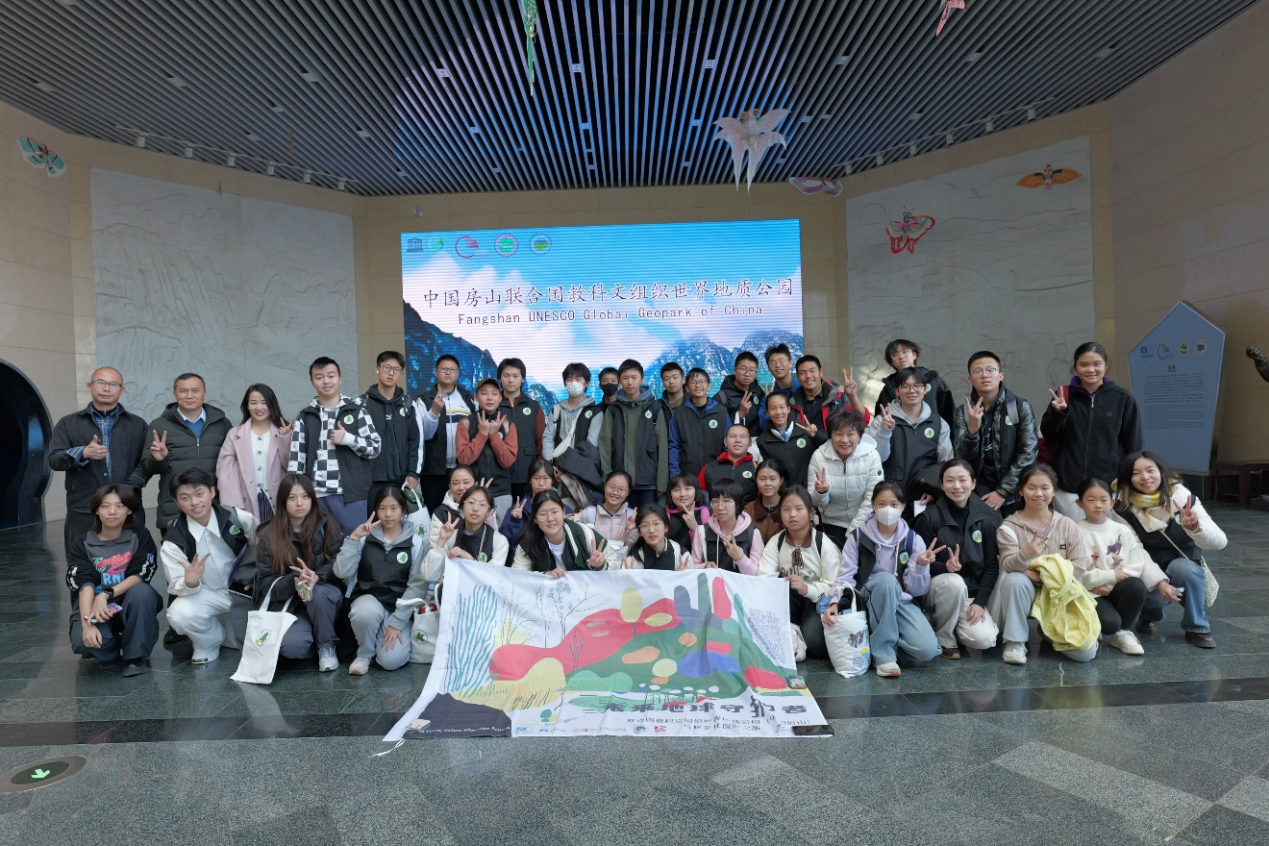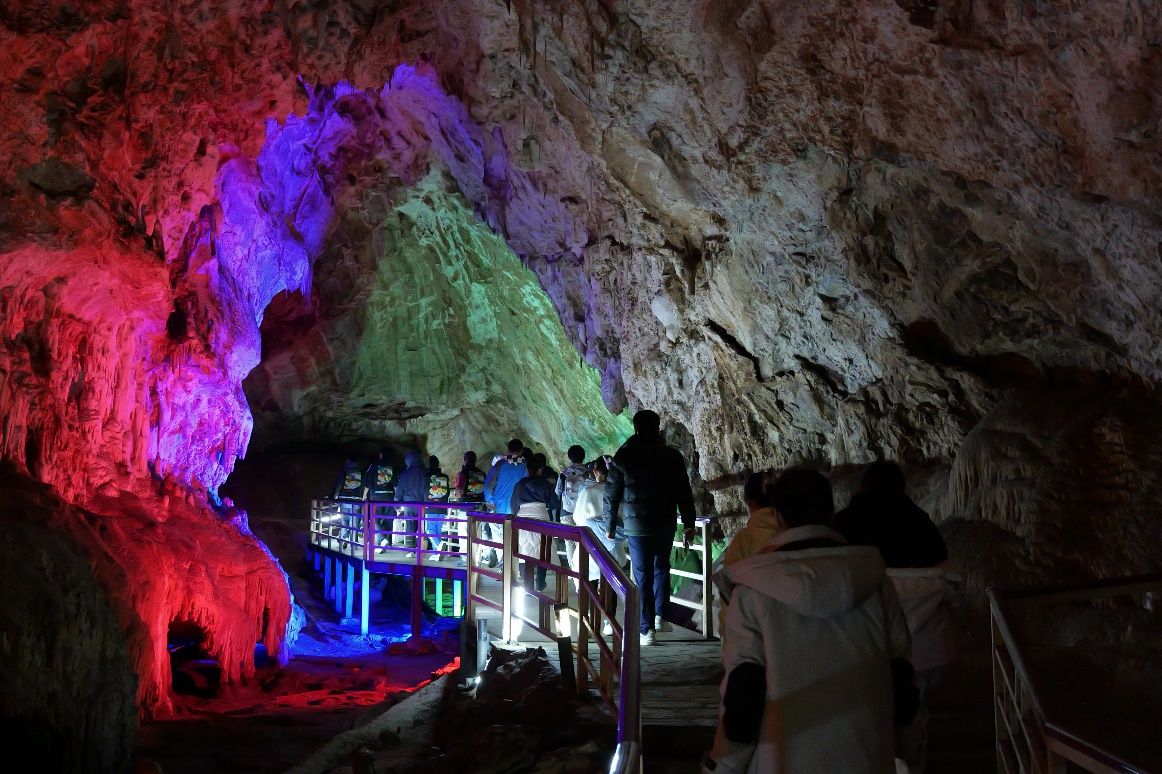On November 30th, the "Future Earth Guardian - UNESCO Global Geopark (Fangshan, China) Climate Change Exploration Program" concluded successfully. This significant initiative was jointly organized by the Department of Earth System Science (DESS) at Tsinghua University, the UNESCO Regional Office for East Asia, and the Fangshan UNESCO Global Geopark, with generous support from the Mercedes-Benz Star Fund and the China Youth Development Foundation. Professor Luo Yong, Dean of Tsinghua DESS, Professor Xia Zehan, Director of the East Asia Regional Office of UNESCO, Jing Zhixing, Deputy Director of Fangshan Global Geopark Management Office and Senior Assessment Expert of UNESCO Global Geopark, addressed the opening ceremony, and Director Wang Qingsheng of the Social Activities Office of National Forestry and Grassland Administration Publicity Center attended the event.
Professor Luo Yong noted that since its inception, Tsinghua DESS has been consistently committed to bridging scientific research and societal needs. The department has been conducting comprehensive studies on critical issues including the climate system, carbon cycle, and global change, while exploring sustainable development pathways that foster harmonious coexistence between humanity and nature. "The transformative power of science must be channeled into educational empowerment," Professor Luo stated. "It is imperative to equip every young individual with the capacity for critical thinking, proactive engagement, and transformative action. This fundamental belief underpins our active participation and support for this significant initiative." Professor Luo extended his encouragement to the youth, urging them to become both practitioners and advocates in addressing climate change. He emphasized the importance of contributing their intellectual capabilities and innovative strength through interdisciplinary collaboration. Furthermore, he expressed his hope that participating students would utilize this program as a springboard for further exploration into broader realms of natural sciences, while actively engaging in environmental conservation initiatives.

Group photo of primary and secondary school students participating in the activity

Visit UNESCO Global Geopark (Fangshan, China)
In his address, Xia Zehan emphasized UNESCO's commitment to collaborating with the younger generation in addressing climate change challenges. "Through such science outreach initiatives, we aim to empower young individuals to become both advocates and implementers of climate action, integrating environmental protection and carbon reduction principles into all aspects of daily life," he stated.
"This initiative aims to not only deepen students' understanding of ecological principles but also inspire youth engagement in environmental stewardship, nurturing tomorrow's sustainability leaders," Jing Zhixing noted.
During the day-long program, Beijing-based primary and secondary school students actively engaged in a series of educational activities. Guided by Tsinghua University volunteers, participants explored multiple scientific sites, including the Fangshan Geopark Museum, Zhoukoudian Peking Man Site Museum, and Shihua Cave Geological Park. The itinerary featured a combination of expert lectures, interactive workshops, and hands-on learning experiences. Reflecting on their participation, students expressed that the program significantly enhanced their understanding of human-nature harmony while strengthening their commitment to environmental stewardship. Meanwhile, the immersive experience had also inspired them to take concrete actions in protecting their shared ecological heritage.
The UNESCO Global Geopark (Fangshan, China) Climate Change Exploration Program represents a collaborative initiative led by Associate Professor Yu Le from Tsinghua DESS. Supported by the Mercedes-Benz Star Foundation and the China Youth Development Foundation, this strategic partnership focuses on advancing global youth education in sustainable development. The program specifically targets the enhancement of young people's understanding of Sustainable Development Goals (SDGs) and the implementation of green campus initiatives, while fostering sustainability education among the younger generation.
Written by Wang Jiayin.
Image source: UNESCO
Reviewed by Yu Le and Geng Rui